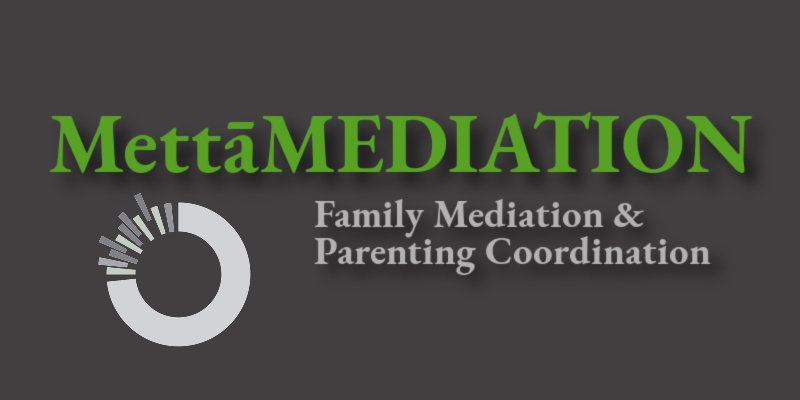A PARENTING PLAN ~ what is it, and why you might need one..
When judges, family law lawyers and mental health professionals use this term in Ontario, they are usually talking about a multi-page document, an agreemen in writing that creates a "road-map" for parents ~ on how to deal with their child(ren), and each other, after a separation. A Parenting Plan is, in fact, a “domestic contract” between parents, a form of a separation agreement, and the terms are enforceable by the Court.
A Parenting Plan may be authored by a variety of people. Many are the result of negotiations between parents, with the assistance of their respective lawyers. Other Parenting Plans result from the recommendations by professionals involved, for example, in a parenting dispute. An assessor under section 30 of the Children's Law Reform Act can be one such person. Parents might also have met with a mediator to work out the terms of a Parenting Plan and if successful, that document would contain all the agreed-to terms.
Parenting Plans in Ontario can address a whole host of issues relating to children. Here are some examples:
who will make decisions about major issues in the children's lives (decision-making authority - formely called “custody”)
where the children will live (parenting time, - formerly called “residence” or “access”)
if the children will live mainly with one parent, how often, and when specifically the other parent will spend time with the children (another reference to parenting time)
whether the parents can move with or without the children (relocation), and how much notice (and in what form) the parent proposing to move is to give the other parent
what protocol will be used if a child requires emergency care while in the care of one parent
what happens when parenting time is missed
what happens if one parent cannot care for the children on their time - this was formely called “right of first refusal” and is now more commonly referred to as “priority of parental care”
who, other than the parents, can look after the children, and in what circumstances
how holidays and special occasions will be shared
how the parents will communicate with one another, and with the children while not in their care.
Parenting Plans also commonly include a Dispute Resolution clause - a mechanism, agreed-to in advance by the parents, for how they will address issues on which they do not agree. This may include mediation, arbitration or court (or a combination of a couple of these, in sequence).
This is not a complete list of issues covered by Parenting Plans - they differ from family to family, depending on the particular needs of the children.
Some Parenting Plans, particularly in cases where parents experience chronic and protracted conflict around parenting, include the appointment of a Parenting Coordinator (commonly known as a "PC") - usually, this person assists the parents in interpreting and implementing their Parenting Plan, and may be involved for as long as 24 to 36 months. On some specific issues, the PC can also make binding decisions for the parents, as an arbitrator. For more information about Parenting Coordination, visit here. It is important to note that PCs become involved only once parenting arrangements are in place (by agreement, court order or arbitration award).
A thorough, thought-through Parenting Plan is an invaluable tool for separated parents. It can help immensely on the road ahead, particularly during periods, as there are in life in general, when the separated parents are not getting along very well. Parenting Plans reduce conflict - in turn, minimizing conflict is crucial, VITAL! for kids’ healthy growth and development post-separation.
I have extenstive experience with Parenting Plans - consider contacting our office if you have further questions. For years now, I have worked with parents both in my capacity as a Family Mediator but also as a lawyer, helping my clients negotiate parenting plans through collaboration with the other parent.
The Association of Family and Conciliation Courts (Ontario Chapter) has some very useful resources related to Parenting Plans, including a Guide and a Template. Read more about them here.





Some SAMPLE clauses from our Parenting Plan TEMPLATE
giving children a voice
“Hunter and Aubrey recognize that Children have a right to express their views and preferences. As they grow, their views and preferences will be increasingly relevant to decisions made by their parents, on issues in their lives. The parties agree to give all three Children an opportunity to voice their views and preferences on matters that directly affect their day-to-day lives. The parties specifically agree that once each Child reaches the age of 14, their views and preferences will be taken into account and given serious consideration before any major decision affecting their lives is made. “
shielding children from discussions about money
“The parties agree that neither of them will engage the Children in discussion of financial and legal issues, either child support or issues relating to child support, as in the payment of certain expenses. Neither parent will share with the Children any document generated for the purposes of a court proceeding.”
“The parties agree that neither of them will encourage or tell the Children to ask for money from the other parent, or to have the other parent pay for a particular expense for the child, either generally or in response to a request made by one parent to the other.”
communication between parents
“Aubrey and Hunter will communicate about the Children using Our Family Wizard (OFW), keeping their messages to one another Brief, Informative, Friendly and Firm (BIFF). All messages will be child-focused and only for the purposes of exchanging information about the Children.
Communication by means other than OFW is permitted only in the event of an emergency relating to the Children or if an emergency in which a parent is involved impacts their care of the Children. In such a case, text or the telephone may be used.
If either parent believes their communication to the other parent on OFW requires a timely response (because, for example, a parent needs to find out if the other parent is available to pick up a Child from an activity), the sending parent will mark their communication “TRR” – the acronym for “timely response requested”. On receiving such a message, the other parent will respond as soon as possible and in any event, within the next 2 hours.”
scheduling of medical and dental appointments
“The Children’s medical and/or dental appointments often necessitate accepting the first available appointment for services. Aubrey and Hunter agree, in the Children’s best interests, that when the Children require medical or dental care, the scheduling parent will accept the first appointment available, irrespective of which parent has care of the Children at the time of the appointment. The residential parent at the time will be responsible for taking the Child to the appointment. If he/she is unable to do so, the other parent will be given the right of first refusal before the residential parent makes other arrangements.”
emergency decisions
“If a Child needs emergency medical care while with one parent, that parent will immediately notify the other parent of the emergency, and if at all possible, delay making any decisions until the other parent can participate in making them. If that is not possible, the attending parent will make the necessary emergent medical decisions, at all times in consultation with health care providers.”
flexibility as to unforeseen events
“The parties will at all times maintain a reasonable and flexible position respecting the parenting time schedule for the Child and at all times the best interests of the Child will prevail. Accordingly, if special occasions, family reunions, extracurricular activities, excursions or other opportunities become available to the Child, or to either party, neither party will insist that the parenting time schedule set out above be adhered to without exception.”
